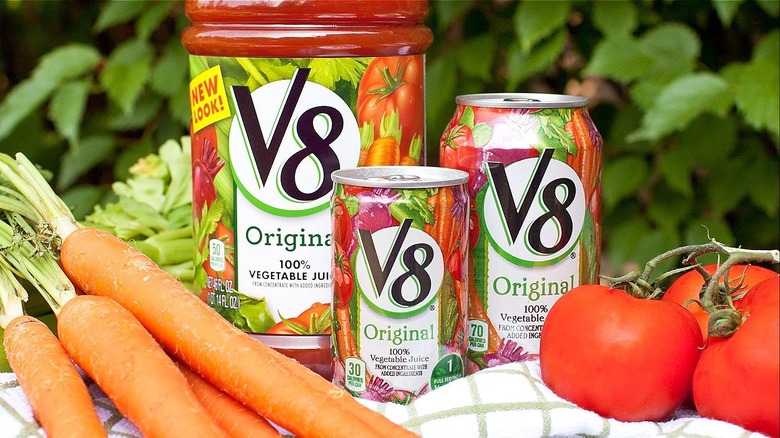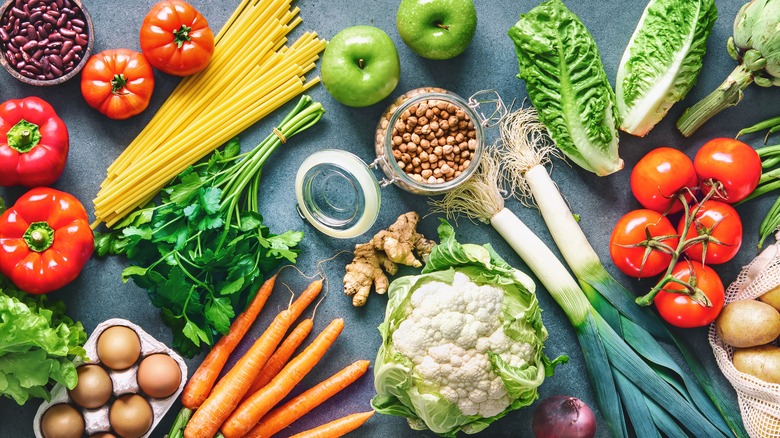Is V8 Actually Healthy For You?
Getting the recommended four to five servings of veggies each day can be challenging at times, especially if you don't have time to cook them up and season them to your liking. They can also be hard to come by based on the continuously rising costs of fresh produce, so you may just opt for the cheaper alternative and eat out at your favorite fast food restaurant instead. Whatever your reason might be for skipping out on your daily vegetables, it can be tempting to grab a pack of V8 and chug them throughout the week to fill that void, especially if you love tomato juice. After all, just one 8-ounce glass will give you two servings of veggies, not to mention other nutrients your body needs, like vitamins A and C.
The ingredients in Campbell's V8 Original 100% Vegetable Juice include a blend of tomatoes, beets, watercress, spinach, carrots, celery, lettuce, and parsley. At just 45 calories and with no added sugar, it might seem like a no-brainer to stock up when you need some veggies. Over the years, V8 has introduced many other juice variations and flavors, like fruit blends, energy drinks, and even a spicy version that Bloody Mary fans may appreciate. But even with such a colorful array of veggies packed into each little can or bottle, nothing can beat the real thing.
Regular V8 is low in fiber and high in sodium
If you're grabbing original V8 off the shelves as a way to supplement your diet's lack of vegetables, you might want to take a look at how much sodium you're consuming with each serving. Eating too much salt can be bad news for maintaining healthy blood pressure levels and can put strain on the heart over time. Switching over to the Low Sodium V8 is a good call, which has just 140mg of sodium compared to the classic drink's 640. Then there's the issue of an overall lack of fiber, which you would be getting significant amounts of if you ate raw fruits and vegetables instead of guzzling them down in liquid form. The juice brand technically came up with a solution to that problem, too: High Fiber V8, which delivers 20% of your body's Daily Recommended Value of fiber.
As San Diego-based endocrinologist Dr. Samantha Harris advises to Scripps Health, "...eating whole fruit is healthier than drinking fruit juice or fruit smoothies." The same goes for vegetable juices like V8. All the vitamins, minerals, and fiber found in fresh produce are highly beneficial to bodily function and wellness, and some even have enough water to help you stay hydrated. So by all means, drink some V8 if you need more greens in your life, but try not to let it become a full-blown replacement. It's best to mix in whole servings of fruits and veggies into your daily diet whenever possible.

